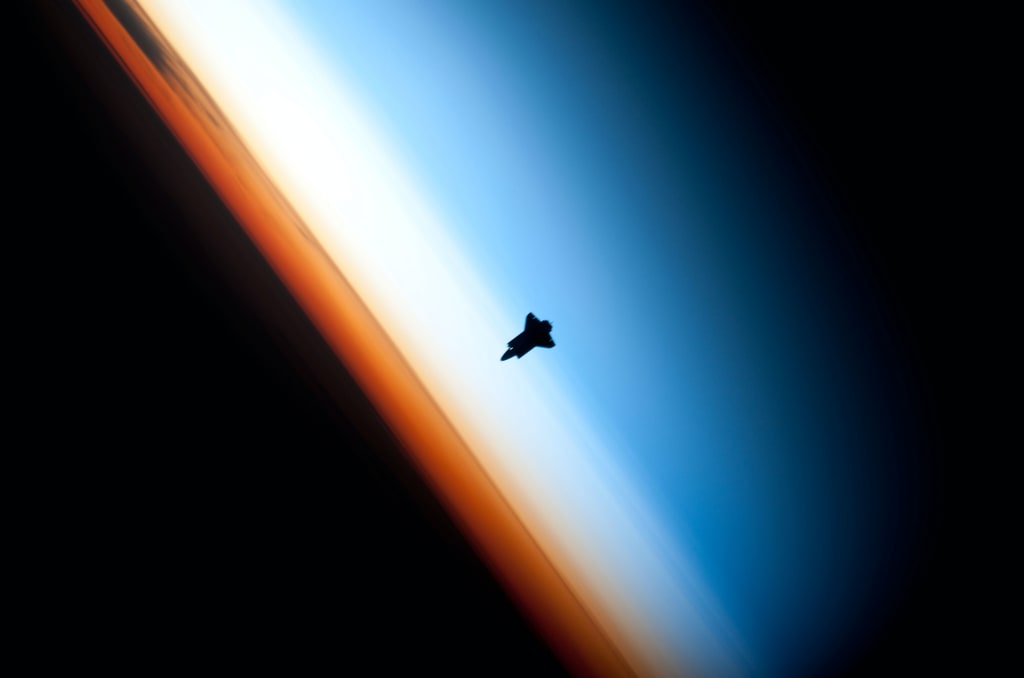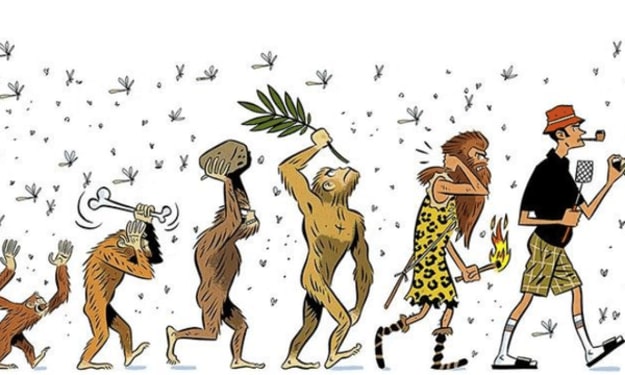After the astronauts died in the universe, the remains fell into other planets. Could it be the origin of life?
Will astronauts become the origin of life after being sacrificed in space?

The courage to explore the unknown is an excellent quality engraved in human DNA, and exploration must be accompanied by sacrifice. It can be said that all the achievements of human exploration are intertwined with the sad song of blood and tears.
Exploring the unknown on Earth is the same as exploring the unknown in space. Compared to the conditions on Earth that are suitable for human activities, exploration in space will face more problems, and it will usually be more difficult.
And this also raises a question: If an astronaut is sacrificed in space exploration, and it is difficult to recover his remains with existing technology, will his remains become the origin of life on other planets?
What happens to the body after death?
On Earth, if no treatment is carried out after death, decay is the only destination for the corpses of all earth creatures. This is mainly because the body loses the regulation of the immune system, and the microorganisms in the body will multiply and then decompose the body into small Molecular matter, rejoining a series of cycles of nature.
In space, astronauts live in astronauts and spaceships. Both places can ensure the oxygen and pressure requirements of astronauts, the human immune system can function normally, and the microorganisms in the body can coexist harmoniously and achieve a balance.
If the astronaut dies, the microbes that were originally harmonious and symbiotic will lose their regulation. At first, there will be a period of soaring. In the human body, the residual material of the human body is used as an energy source, and then the human body is decomposed. But this growth doesn't last long, as changes in the environment can again inhibit their proliferation.
Compared with the space environment, the biggest difference between spacecraft and space suits is the gas, temperature and pressure. Space is almost a vacuum. If the spacesuit is connected to the outside world when the astronaut sacrifices, the water in his body will be quickly evaporated.
Since there is no heat transfer medium in the vacuum, the heat in the body can only be dissipated slowly by radiation, so the astronaut's body will not cool down very quickly, and the microorganisms at this time can still survive in the body.
Since there is no atmosphere in the universe, direct sunlight on the body will have a strong heating effect, and it can also kill many microorganisms.
Under this double baptism of ice and fire, it is difficult for the microorganisms in the body to survive, and without the decomposition of microorganisms, the remains of astronauts will not rot like they do on Earth.
whereabouts of the remains
Nowadays, due to the limitation of scientific and technological capabilities, the missions performed by astronauts are almost all near-Earth missions, which means that they are not far from the earth and are still within the gravitational range of the earth.
If the astronaut is sacrificed within this distance, then the body will revolve around the earth under the action of the earth's gravity, become the "satellite" of the earth, and then be slowly pulled into the earth's atmosphere, becoming a satellite in the violent friction with the atmosphere. The dazzling meteor, just like the fate suffered by the dog Laika.
In the early days of the development of manned spaceflight, in order to ensure the safety of astronauts, before the astronauts actually entered the universe, scientists had done many animal experiments, and the first mammal to enter the universe was a 3 Aged mixed-breed bitch.
On November 3, 1957, after more than 20 days of training, "Laika" flew out of the atmosphere with "Sputnik 2" and entered the vast universe.
Because the spacecraft did not have a thermal insulation system, the only cooling tool was a small fan. Under the attack of high temperature and fear, Laika lost all vital signs after entering the universe for only 5 hours.
On April 4, 1958, "Sputnik 2" fell into the atmosphere after 2,570 orbits around the earth, and became a member of the earth's natural cycle together with Laika in the violent friction.
In addition to falling into the atmosphere and being burned, the remains of astronauts may also be "burned" by sunlight. Under the action of the sun's rays, the charged particles will continue to bombard the biological tissue, causing the biological tissue to slowly decompose under the impact, and finally converted into small molecules and dissipated in the vast universe.
If an astronaut dies while performing a mission in outer space, and the spacesuit or spacecraft is well preserved, his remains will float in the universe because the earth's gravity cannot affect it, until it is captured again by the gravity of a planet.
It should be noted that even if the space suits and spacecraft are well preserved, after the power system and life support system stop working, the remains of the astronauts will still fall into extreme cold, and most of the microorganisms in the body will go dormant or die.
If the planet where the body was captured has an atmosphere similar to that of the earth, then the fate of the body will be the same as falling into the earth's atmosphere, and it will be completely incinerated due to violent friction, and if the planet has no atmosphere at all or the atmosphere is extremely thin, then the body will be There is a high probability that it will fall directly into the surface of the planet.
Will the remains become the seeds of life on the planet?
The human body contains a large amount of organic matter, which contains one of the most important components of life - amino acids.
But just having amino acids does not mean that life will definitely appear, because if life is a building, amino acids are just the cornerstone bricks of the building. Without the help of external forces, the bricks will not build a complex building by themselves. Therefore, even if the body falls on the surface of a certain planet, it will not necessarily give birth to life.
If the body falls into the ocean of this planet by chance, and there are undersea hot springs in the ocean, then the probability of giving birth to life is very high, because the environment around the hot springs can greatly promote the synthesis of substances necessary for other life. .
As Gary King, a microbiologist at Louisiana State University, said in an interview with Astronomy magazine, if human corpses land on a planet that already has certain basic molecules, then The probability of giving birth to life will skyrocket.
And his point of view also brings a very terrifying question: Could the origin of life on earth be caused by the corpse of an alien creature falling into the earth?
About the Creator
Vicky
The world is so wonderful, let's get to know the world together!
Enjoyed the story? Support the Creator.
Subscribe for free to receive all their stories in your feed. You could also pledge your support or give them a one-off tip, letting them know you appreciate their work.






Comments
There are no comments for this story
Be the first to respond and start the conversation.